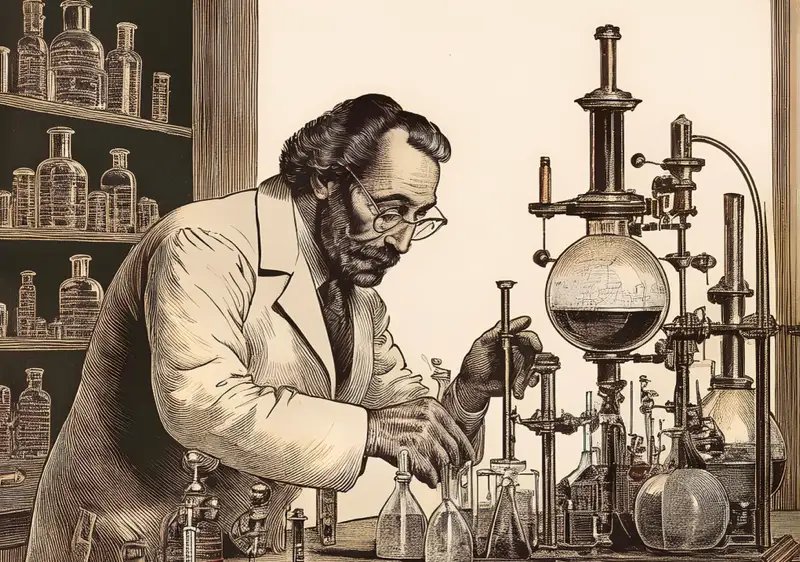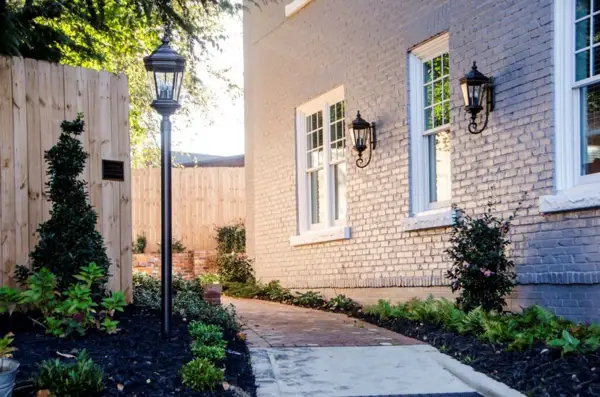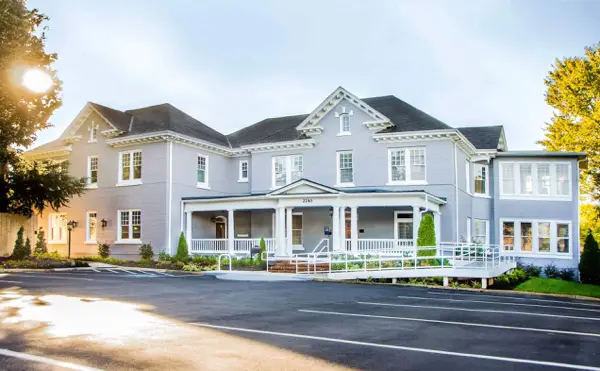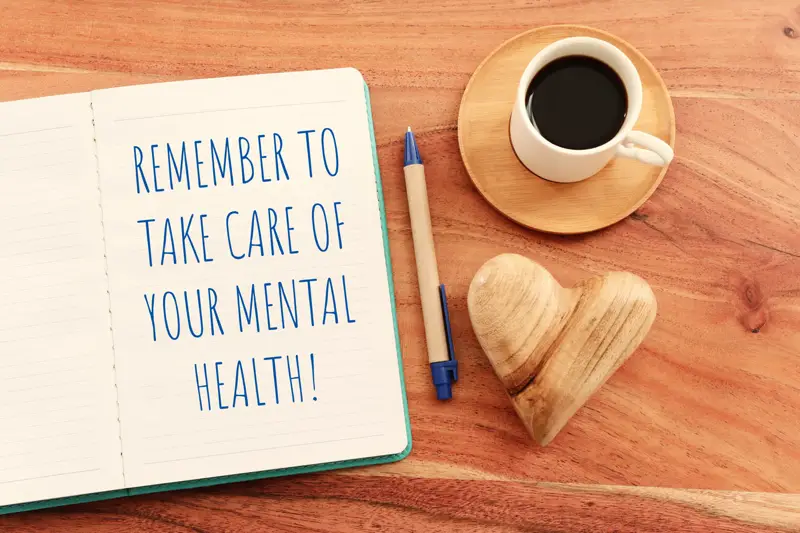Benzodiazepine Addiction and Recovery
Benzodiazepine addiction can profoundly impact an individual’s health and well-being, making recovery a challenging journey.
Dilworth Center offers specialized treatment programs to help individuals overcome benzodiazepines addiction and achieve lasting recovery. Our team of experienced professionals utilizes evidence-based practices to address both the physical and psychological aspects of addiction. Whether you’re navigating benzodiazepine withdrawal or undergoing a medically supervised taper, Dilworth Center in Charlotte, NC, provides supportive, evidence-based treatment—including CBT, motivational interviewing, and robust family and dual-diagnosis support. Explore our comprehensive benzodiazepine recovery services and take the first step towards a healthier, sober life.
Understanding Benzodiazepine Addiction
Benzodiazepine Effects
Benzodiazepines, such as Xanax and Klonopin, are commonly prescribed for anxiety and sleep disorders. While effective for short-term use, prolonged use can lead to dependence and addiction. Xanax dependence symptoms can include drowsiness, confusion, and impaired coordination. Withdrawal symptoms from Xanax can be severe and include anxiety, insomnia, and seizures. Recognizing the signs of benzo addiction is crucial for seeking timely and effective treatment.

The History of Benzodiazepine Addiction
Benzodiazepines, commonly known as benzos, have a relatively recent history compared to other substances like opiates and alcohol. These medications were first introduced in the mid-20th century and quickly became popular due to their effectiveness in treating anxiety, insomnia, and various other conditions. However, their potential for addiction and abuse soon became apparent, leading to significant public health concerns.

Benzodiazepine Discovery and Early Use
Benzodiazepines were first synthesized in 1950s by Dr. Leo Sternbach, a chemist at Hoffmann-La Roche. The first benzodiazepine, chlordiazepoxide (Librium), was marketed in 1960s, followed by diazepam (Valium) later that decade. These drugs were initially hailed as safer alternatives to barbiturates, which were commonly used at the time but had a high risk of overdose and dependence. Benzodiazepines quickly gained popularity due to their calming effects and lower immediate toxicity.
Rapid Rise in Popularity
Throughout the 1960s and 1970s, benzodiazepines became some of the most widely prescribed medications in the world. Valium, in particular, became synonymous with the treatment of anxiety and was often referred to as “Mother’s Little Helper.” However, as their use became widespread, reports of dependence and abuse began to surface. Patients who used benzodiazepines for extended periods often found themselves unable to stop without experiencing severe withdrawal symptoms.


First Recorded Problems
By the late 1970s, medical professionals began to recognize the addictive potential of benzodiazepines. The first significant wave of concern came from the United Kingdom, where doctors reported increasing numbers of patients struggling with benzodiazepines addiction. Studies indicated that long-term use could lead to tolerance, dependence, and a range of withdrawal symptoms, such as anxiety, insomnia, and seizures.
In 1980, the British Medical Journal published a landmark study highlighting the risks associated with prolonged benzodiazepine use. This study, among others, led to a reevaluation of prescribing practices and increased awareness of the potential for addiction. The term “benzo withdrawal syndrome” became more widely recognized as patients reported severe withdrawal symptoms when attempting to taper off the medication.
Modern Awareness and Treatment
In recent years, the focus on benzodiazepine addiction has intensified, partly due to the opioid crisis, which has highlighted the broader issue of prescription drug abuse. Increased efforts have been made to educate both healthcare providers and patients about the risks associated with benzodiazepines. Modern treatment approaches for benzodiazepine addiction emphasize the importance of tapering off Xanax and other benzos gradually under medical supervision to minimize withdrawal symptoms and reduce the risk of relapse.
Understanding the historical context of benzodiazepines and the evolution of benzodiazepines addiction underscores the importance of seeking professional help for recovery. Recognizing the dangers of withdrawal from Xanax and other benzos, and the necessity of proper medical support during the recovery process, is crucial for successful treatment.

Symptoms of Benzo Addiction
Identifying benzodiazepine addiction involves recognizing both physical and behavioral symptoms. Common signs include increased tolerance, experiencing withdrawal symptoms such as severe anxiety and insomnia, and continued use despite negative consequences. Individuals may also exhibit behaviors such as doctor shopping to obtain more prescriptions. Understanding these symptoms and getting help can significantly improve the chances of successful recovery. Dilworth Center offers benzodiazepine abuse treatment to support individuals through this challenging process.
The Recovery Journey
Recovery is Possible
Recovery from benzodiazepine addiction is challenging but achievable with the right support. At Dilworth Center, we provide comprehensive treatment programs tailored to meet the specific needs of each individual. Utilizing evidence-based therapies and a compassionate approach, we offer the tools and support needed for long-term recovery. Whether you’re dealing with klonopin withdrawal or seeking treatment for benzodiazepine addiction, our dedicated team is here to help.

Recovery Expectations
Understanding what to expect during recovery can help individuals stay committed and motivated. While every individual may have slight variations of this process, this is a good overview of what to expect.

The First 30 Days : Benzo Detox and Initial Adjustment
The first month focuses on detoxing from benzodiazepines and managing withdrawal symptoms. Professional support is essential to ensure safety and comfort. Medications for benzo withdrawal can help ease symptoms and improve the detox process.
For individuals needing medical detox, we refer to trusted local providers who ensure safety during withdrawal. Once detox is complete, patients continue care with us through intensive outpatient programs, counseling, and family support

Days 31-90: Building a Foundation for Benzo Recovery
During the next two months, the emphasis shifts to building coping strategies and addressing the psychological aspects of addiction. Group therapy and individual counseling sessions play a crucial role.

Days 90-180: Strengthening Benzodiazepine Recovery Skills
Maintaining sobriety becomes the focus, with ongoing therapy and support. This phase is about solidifying new habits and preparing for long-term recovery.

Days 180-365: Achieving Long-Term Goals
This phase involves achieving long-term recovery goals and building a sustainable, sober lifestyle. Continuous support and participation in recovery programs are essential, as is being of service to others who are suffering from benzodiazepine addiction.
Beyond the First Year
Sustaining sobriety beyond the first year of recovery from benzodiazepine addiction requires continuous effort and support. Engaging in ongoing therapy and support groups is crucial. Developing healthy coping mechanisms, such as mindfulness, exercise, and hobbies, helps manage anxiety without reverting to benzodiazepines. Building a supportive network of family and friends, setting and achieving personal goals, and continuously monitoring and managing triggers through a personalized relapse prevention plan are important. Maintaining a healthy lifestyle, staying informed about addiction and recovery, and seeking help when needed are essential. Engaging with the recovery community and focusing on these aspects can help build a robust foundation for a sober and fulfilling life. Dilworth Center is here to support you every step of the way.

Family and Support
Family Support
Supporting a family member through benzodiazepine addiction can be daunting, but family involvement is crucial for successful recovery. Understanding xanax withdrawal symptoms and participating in family support programs can make a significant difference. At Dilworth Center, we offer family addiction support and family addiction therapy to help loved ones navigate the challenges of addiction and recovery.

Dilworth Center Services
Recovering from Benzodiazepines with Dilworth Center
At Dilworth Center, we provide personalized addiction treatment for benzodiazepine addiction, addressing both physical and psychological aspects with evidence-based therapies and a compassionate approach. While we don’t handle detox in-house, we work with trusted medical professionals for a safe detox process. Our services include intensive outpatient programs, counseling, group therapy, and family support. Located in Charlotte, NC, we offer a supportive environment for recovery.

Take the First Step Toward Lasting Benzo Recovery
Are you ready to overcome benzo addiction? Our expert team at Dilworth Center is here to support you on your path to sobriety. Discover personalized treatment plans that empower long-term recovery. Don’t wait—reach out today and start your journey toward a healthier, benzo-free life.

Dilworth Center Treatment Programs for Benzodiazepines

Adult Intensive Outpatient Program (IOP) for Benzodiazepines
Our Adult Intensive Outpatient Program (IOP) at Dilworth Center is designed to provide flexible and effective treatment for individuals struggling with benzodiazepine addiction. This program offers a structured environment where patients can receive comprehensive care while maintaining their daily responsibilities, making it ideal for those who need support but do not require 24-hour supervision.
Our outpatient rehab focuses on helping patients understand the root causes of their benzodiazepine addiction and develop the skills needed for long-term recovery. We employ evidence-based therapies, including cognitive-behavioral therapy (CBT) and motivational interviewing, to address the psychological aspects of addiction. Group therapy sessions and individual counseling are integral parts of the program, providing a supportive community and personalized attention.
If you’re looking for an outpatient drug rehab specifically tailored to benzodiazepine addiction, Dilworth Center’s Adult IOP is a highly recommended choice. Located conveniently in Charlotte, NC, our outpatient drug and alcohol treatment program offers easy access for local residents. We understand that each individual’s journey to recovery is unique, and our tailored approach ensures that every patient receives the care they need.

Young Adult Intensive Outpatient Program (IOP) for Benzodiazepines
The Young Adult Intensive Outpatient Program (IOP) at Dilworth Center is specifically tailored to meet the unique needs of young adults struggling with benzodiazepine addiction. This program provides a supportive and structured environment where young adults can engage in effective treatment without disrupting their daily lives. Our rehab centers for young adults are designed to address both the physical and psychological aspects of benzodiazepine addiction.
Our drug rehab programs for young adults focus on helping participants develop coping strategies, build resilience, and establish a solid foundation for long-term recovery. Group therapy sessions offer peer support, while individual counseling ensures personalized care. Located in Charlotte, NC, our center is easily accessible for those seeking young adult rehab programs. By offering comprehensive care that meets the unique challenges faced by young adults, we help our patients transition into a sober, fulfilling life.
Join our Young Adult IOP and take the first step toward recovery at Dilworth Center, a nonprofit provider with over 35 years of service, CARF accreditation, NAATP membership, and participation in FoRSE outcomes reporting.

Adolescent Intensive Outpatient Program (IOP) for Benzodiazepines
Our Adolescent Intensive Outpatient Program (IOP) at Dilworth Center is specifically designed for teenagers struggling with benzodiazepine addiction. This program offers a structured and supportive environment where adolescents can receive comprehensive care while continuing their education and daily activities. At Dilworth Center, we understand the unique challenges that come with addiction at a young age, and our drug rehab for minors is equipped to address these needs effectively.
The drug treatment center for teens at Dilworth Center integrates evidence-based therapies, such as cognitive-behavioral therapy (CBT) and family therapy, to address both the psychological and social aspects of addiction. Group therapy sessions provide a peer support network, while individual counseling ensures personalized attention and care. Located in Charlotte, NC, our center is accessible for families seeking effective rehabs for teenager.

Family Program
The Family Program at Dilworth Center recognizes that benzodiazepine addiction affects not just the individual but their entire family. Our comprehensive approach includes family therapy for drug addiction, which aims to educate and support family members as they navigate their loved one’s recovery journey. Through these sessions, families learn about the nature of addiction, improve communication, and develop healthy ways to support their loved one.
With our family addiction therapist programs, families are equipped with the knowledge and tools they need to contribute positively to their loved one’s recovery from benzodiazepine addiction. By fostering a supportive and understanding home environment, we help families rebuild trust and relationships that may have been strained by addiction.
Join our Family Program and see how family addiction support can make a significant difference in your loved one’s journey to sobriety.

Co-Occurring Mental Health Treatment
Addressing both addictions and mental health is crucial for effective recovery, especially for individuals struggling with benzodiazepine addiction and co-occurring mental health disorders. At Dilworth Center, our Mental Health Program is specifically designed for dual diagnosis patients, providing integrated care to treat both substance use and underlying mental health conditions simultaneously.
Our approach involves comprehensive treatment for those facing anxiety and addiction, utilizing evidence-based therapies to address the complex interplay between these conditions. Our experienced team works closely with each patient to develop personalized treatment plans that cater to their unique needs, ensuring that both their mental health and addiction issues are treated effectively.
Individuals dealing with depression and substance use will find specialized support through our dual diagnosis program. We offer a combination of therapies, including cognitive-behavioral therapy (CBT), motivational interviewing, and medication management, to help patients manage their mental health symptoms while also addressing their substance use. Our compassionate and skilled professionals provide a supportive environment that fosters healing and recovery.

Relapse Prevention
At Dilworth Center, we understand that maintaining sobriety requires ongoing effort and support, especially for those recovering from benzodiazepine addiction. Our Relapse Prevention Program is designed to equip individuals with the tools and strategies needed to sustain long-term recovery.
Our comprehensive relapse prevention program involves developing personalized relapse prevention plans tailored to each patient’s unique triggers and challenges. Utilizing evidence-based relapse prevention strategies, our experienced therapists work with patients to identify early warning signs of relapse and develop effective coping mechanisms. This proactive approach helps individuals manage stress and avoid situations that may lead to substance use.
Our program incorporates individual counseling, group therapy, and educational workshops to reinforce these strategies. By participating in our Relapse Prevention Program, patients receive the continuous support needed to maintain their sobriety and handle life’s challenges without resorting to benzodiazepine use.










